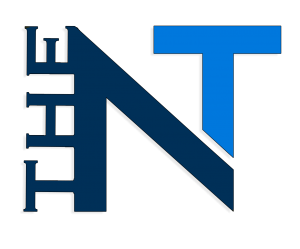The digital landscape of the health industry faced a seismic shock when UnitedHealth’s subsidiary, Change Healthcare, became the target of a sophisticated cyberattack. This breach has not only compromised sensitive data but also exposed the fragility of cybersecurity measures in place. The incident necessitates a rigorous health industry cyberattack analysis and a reevaluation of data protection for healthcare protocols. Jeff Lanza, A former FBI agent, knows too much about every aspect of the attacks.
The Cyberattack: Unraveling the Impact
Change Healthcare, integral to the healthcare infrastructure, experienced unprecedented disruption due to the cyberattack. The breach affected a vast array of services, including critical patient data processing systems, highlighting the urgent need for fortified data protection for healthcare measures.
Immediate Measures and Long-Term Strategies
In response to the crisis, UnitedHealth Group implemented immediate containment and recovery strategies. The rapid deployment of advanced cybersecurity teams to assess and mitigate the damage was crucial. However, the incident has sparked a broader discussion on the necessity for a proactive and predictive approach to cybersecurity in the health sector.
Data Protection for Healthcare: A Critical Analysis
The cyberattack on Change Healthcare has underscored the paramount importance of safeguarding patient information. In an era where data breaches can have far-reaching consequences, the health industry must adopt a zero-trust architecture, ensuring continuous verification of all users and devices.
Strengthening Cybersecurity Frameworks
A comprehensive health industry cyberattack analysis reveals that despite advancements in technology, healthcare organizations often lag in implementing robust cybersecurity frameworks. The sector must prioritize investment in cutting-edge security solutions, including AI-driven threat detection systems, to stay ahead of cyber threats.
The Human Element in Cybersecurity
While technology plays a critical role in cybersecurity, the human element cannot be overlooked. Ongoing training and awareness programs are essential to equip healthcare professionals with the knowledge to identify and prevent potential cyber threats.
Collaborative Efforts to Enhance Security
The cyberattack on UnitedHealth’s subsidiary serves as a catalyst for collaborative efforts between healthcare organizations, cybersecurity experts, and government agencies. A unified approach is imperative to develop comprehensive strategies that address the unique challenges of cybersecurity in healthcare.
Lessons Learned and the Path Forward
The fallout from the cyberattack is a stark reminder of the ever-evolving nature of cyber threats. It highlights the need for the health industry to continuously adapt and evolve its cybersecurity practices. Regular audits, adherence to stringent compliance standards, and a culture of cybersecurity mindfulness are the cornerstones of a resilient defense system.
Building a Resilient Healthcare Ecosystem
To safeguard against future cyber threats, the health industry must foster a culture of resilience. This involves not only technological upgrades but also a shift in mindset, where data protection becomes an integral part of the organizational ethos.
Conclusion
The cyberattack on UnitedHealth’s subsidiary is a clarion call for the health industry to intensify its focus on cybersecurity. It is a complex challenge that requires a multifaceted response, combining advanced technology, skilled professionals, and a collaborative approach. By prioritizing data protection for healthcare and conducting a thorough health industry cyberattack analysis, the sector can emerge stronger and more secure, ready to face the cyber challenges of tomorrow.




